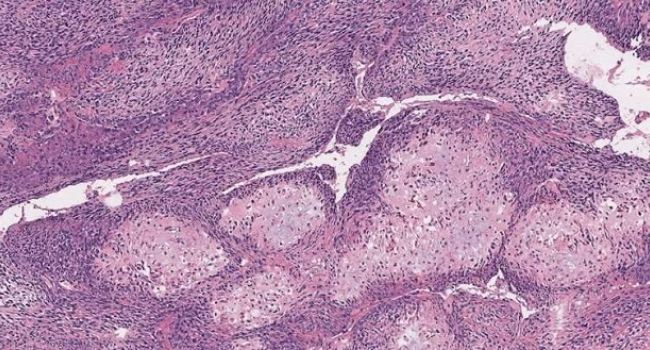- Latest news▼
-
15:11, April 24 Zombie deer disease possibly linked to hunters’ deaths

-
12:27, April 23 Appetite: Scientists found out the secret to the appeal of large portions of fast food

-
10:33, April 23 Scientists test new approach to fighting viruses

-
08:38, April 23 Ketamine may help with postpartum depression

-
22:12, April 22 Unhealthy amount of sugar found in baby food products of a well-known brand

-
19:41, April 22 Air pollution puts health of more than 1.6 billion workers globally at risk

-
17:25, April 22 Scientists found baked goods and lack of sleep to be more dangerous than alcohol

-
16:02, April 22 342 cases of measles recorded in Armenia so far in 2024

-
15:29, April 22 BrainStimulation: electrical brain stimulation alleviates anxiety and depression in the elderly

-
08:27, April 22 Cognitively stimulating jobs in midlife could lower dementia risk in old age, study finds

-
20:37, April 21 Environmental Health Perspectives: Microplastics ingested with food and water can spread from the gut to the brain

-
22:41, April 20 Scientists develop new method to safely stimulate immune cells to fight cancer

-
20:46, April 20 Blood test can determine who is at risk of developing multiple sclerosis - scientists

-
18:36, April 20 Next pandemic likely to be triggered by flu - scientists

-
12:16, April 19 Scientists grow human mini-lungs in lab

All materials
Researchers develop unique technology for most effective bone cancer treatment

Of the many ways to treat cancer, the oldest and perhaps most proven is surgery. Even with the advent of chemotherapy, radiation therapy and more experimental treatments such as bacteria that seek out and destroy cancer cells, very often the cancer simply must be cut out of the patient's body.
The goal is to remove all cancerous tissue while preserving as much surrounding healthy material as possible. But because it can be difficult to draw a clear line between cancerous and healthy tissue, surgeons often remove healthy tissue to make sure they have removed all cancerous tissue.
This is especially problematic when the patient suffers from cancer affecting the bones. They present a unique challenge during surgery because of their hardness compared to other tissues and because they grow much slower than other types of tissue.
A new diagnostic imaging technology developed by Caltech researchers gives surgeons the ability to make incisions 10 times more accurately, allowing them to preserve 1,000 times more healthy tissue and making it easier for patients to recover.
The new imaging technology, called ultraviolet photoacoustic microscopy with real-time three-dimensional contour scanning, or UV-PAM, is intended to replace the traditional method of detecting cancerous bone tissue. Because the process takes only a few minutes, it gives the surgeon the ability to distinguish healthy bone from cancerous bone during surgery.
UV-PAM uses ultraviolet wavelengths of laser radiation tuned to make DNA and RNA molecules vibrate. Because cancer cells have a different structure and contain much more DNA than healthy cells, a section of cancerous tissue absorbs more ultraviolet light and therefore gives a stronger ultrasound signal than healthy tissue, allowing the surgeon to clearly identify areas of bone that need to be removed.
A paper describing UV-PAM is published in Nature Biomedical Engineering.
Follow NEWS.am Medicine on Facebook and Twitter
- Video
- Event calendar
- Archive
- Most read
month
week
day
- JAMA Oncology: Urine test can help rule out high-grade prostate cancer with almost 100% accuracy, study shows 1230
- Daily Mail: Elderly woman in China gets infected with brain-eating amoeba 1179
- Obesity: exercising before breakfast helps you lose weight faster 1161
- The Conversation: childhood trauma can cause pathological hoarding 1160
- Daily Mail: Satiating food reduces cravings for sweets, nutritionist says 1135
- Scientists grow human mini-lungs in lab 1126
- Next pandemic likely to be triggered by flu - scientists 782
- Scientists found baked goods and lack of sleep to be more dangerous than alcohol 707
- 342 cases of measles recorded in Armenia so far in 2024 670
- Blood test can determine who is at risk of developing multiple sclerosis - scientists 650
- Scientists develop new method to safely stimulate immune cells to fight cancer 645
- Cognitively stimulating jobs in midlife could lower dementia risk in old age, study finds 631
- BrainStimulation: electrical brain stimulation alleviates anxiety and depression in the elderly 584
- Air pollution puts health of more than 1.6 billion workers globally at risk 436
- Unhealthy amount of sugar found in baby food products of a well-known brand 430
- Find us on Facebook
- Poll





